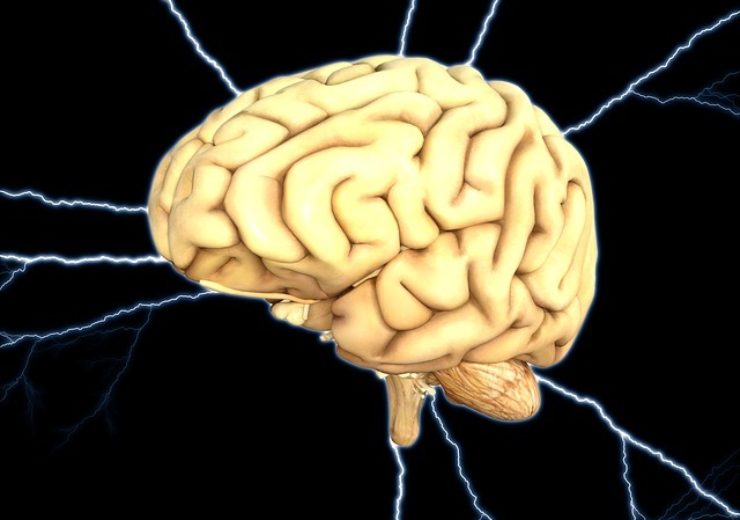Researchers at the Uniformed Services University of the Health Sciences will present clinical data at the 2019 Military Health System Research Symposium (MHSRS) in Kissimmee, FL from August 19-22 from an investigator-initiated trial utilizing the Company's NeuroStar Advanced Therapy TMS research system for PTSD and traumatic brain injury (TBI)

Image: USU researchers to showcase Neuronetics-based research at MHSRS. Photo: Courtesy of Pete Linforth/Pixabay
Neuronetics, a commercial stage medical technology company focused on designing, developing and marketing products that improve the quality of life for patients who suffer from psychiatric disorders, announced that researchers at the Uniformed Services University of the Health Sciences will present clinical data at the 2019 Military Health System Research Symposium (MHSRS) in Kissimmee, FL from August 19-22 from an investigator-initiated trial utilizing the Company’s NeuroStar Advanced Therapy TMS research system for PTSD and traumatic brain injury (TBI). In addition, they will present a case report of one patient treated and studied for Alzheimer’s Disease. MHSRS is the Department of Defense’s premier scientific meeting focused on military-related research and development. The commercially available NeuroStar system is FDA-cleared in the United States for the treatment of Major Depressive Disorder (MDD) in adult patients who have failed to receive satisfactory improvement from prior antidepressant medication in the current episode.
“The investigators at Uniformed Services University using the NeuroStar system to conduct potentially life-changing research truly share our passion and commitment to transforming lives,” said Chris Thatcher, President and CEO of Neuronetics. “We know that mental health challenges continue to plague millions, including those in the armed forces, and research like this is critical when it comes to making strides toward new treatment efforts to serve those who dedicate their lives to serving others.”
The research, led by Paul F. Pasquina, MD, Professor and Chair of the Department of Physical Medical and Rehabilitation at Uniformed Services University of the Health Sciences and Chief of Rehabilitation Medicine Service at Walter Reed National Military Medical Center, and his colleague Mr. Jared Garland, Clinical Research Assistant at the Henry M. Jackson Foundation for the Advancement of Military Medicine in Support of the Center for Rehabilitative Sciences Research at Uniformed Services University of the Health Sciences, will be presented by Mr. Garland in two poster sessions at the symposium highlighting their NeuroStar system research and future implications of the innovative technology.
Wednesday, August 21, 2019 at 10 a.m.: Evolution of a Study of Bilateral Prefrontal Transcranial Magnetic Stimulation to Treat the Symptoms of Mild TBI and PTSD: Research Methods, Participant Demographics, and Tolerability
PTSD can be present in as many as 65% of service members who suffer a TBI, and these co-occurring conditions can, unfortunately, confound treatment of both conditions. The prevalence of the concurrent conditions led to a clinical trial conducted by Dr. Pasquina. During this poster session. Dr. Pasquina will present preliminary data from the double-blinded, prospective randomized, sham-controlled trial, which suggested that the treatment may be safe and tolerable among the study’s military patients with diagnosed mTBI and symptoms of PTSD.
Tuesday, August 20, 2019 at 10 a.m. — Repetitive Transcranial Magnetic Stimulation as a Protective Measure against Early-Onset Alzheimer’s Disease: A Case Report
Alzheimer’s Disease is a progressive neurodegenerative disease marked by a degradation of neuroplasticity and cortical breakdown. Repetitive transcranial magnetic stimulation (rTMS) is hypothesized to increase cortical plasticity and induce long-lasting changes in the cortex, making it a potential therapy to slow down the development of early-onset Alzheimer’s. Jared Garland will present a case report detailing the use of rTMS to delay development of early-onset Alzheimer’s in a patient who had a known mutation for the disease. After completing 30 rTMS/cognitive training sessions, the patient showed high levels of tolerability and marked improvement in all cognitive domains.
Dr. Pasquina, Mr. Garland, and the Center for Rehabilitation Sciences Research at Uniformed Services University hope that their ongoing TMS technology research will improve our understanding of traumatic brain injury, post-traumatic stress and general neurophysiology. Their team remains committed to exploring improved treatment options for wounded warriors and believe that any lessons learned through these efforts will also benefit the medical research community.
Source: Company Press Release
